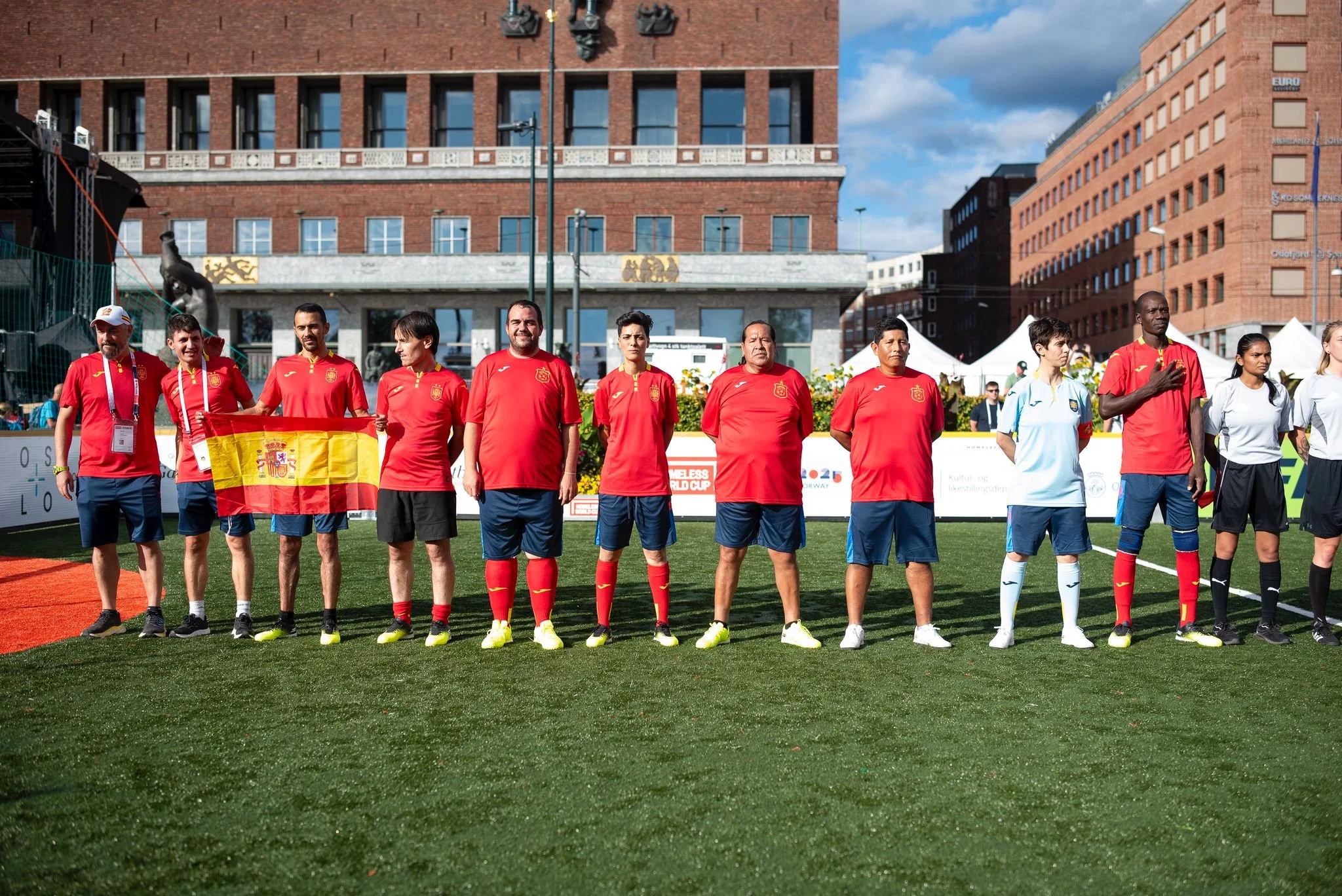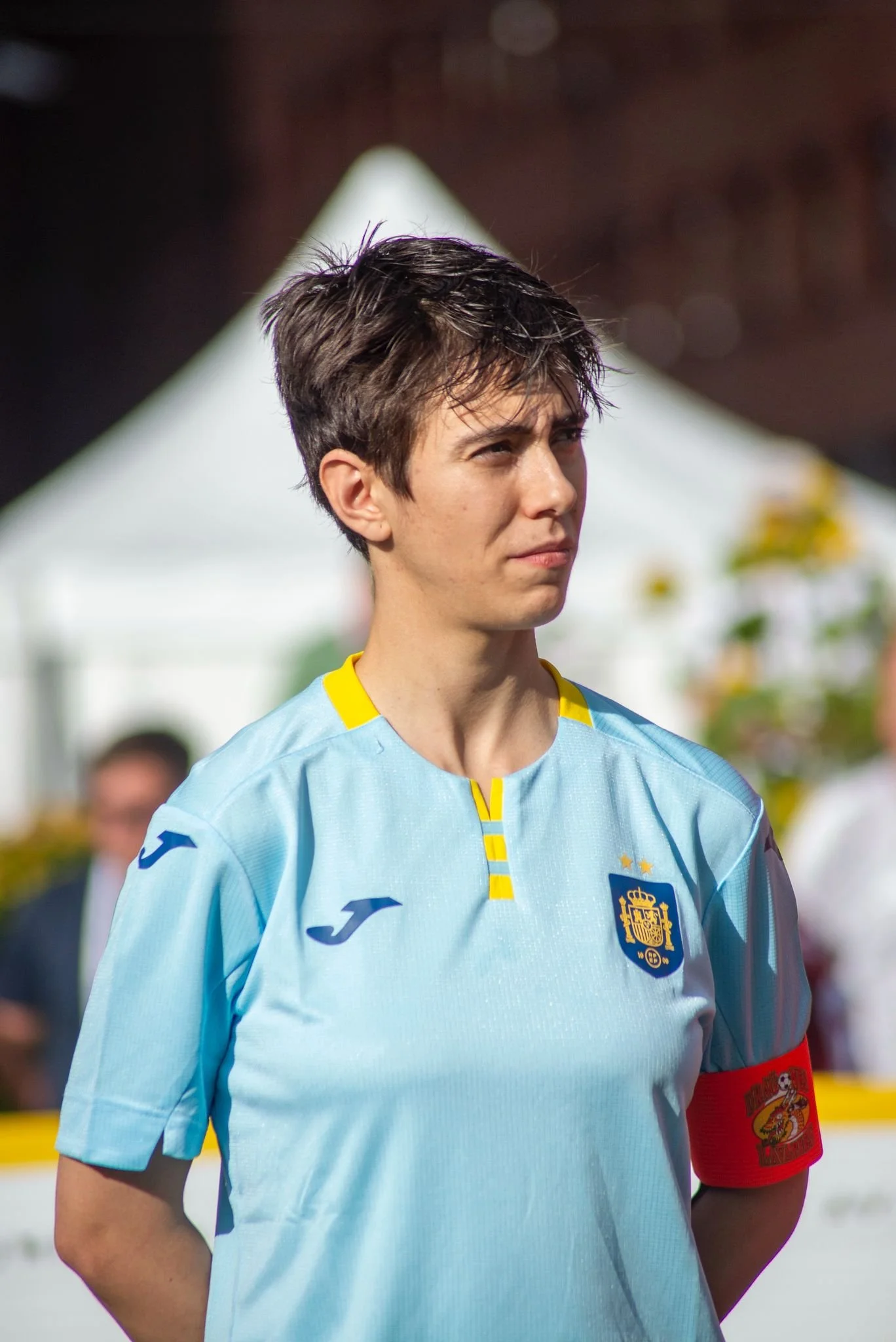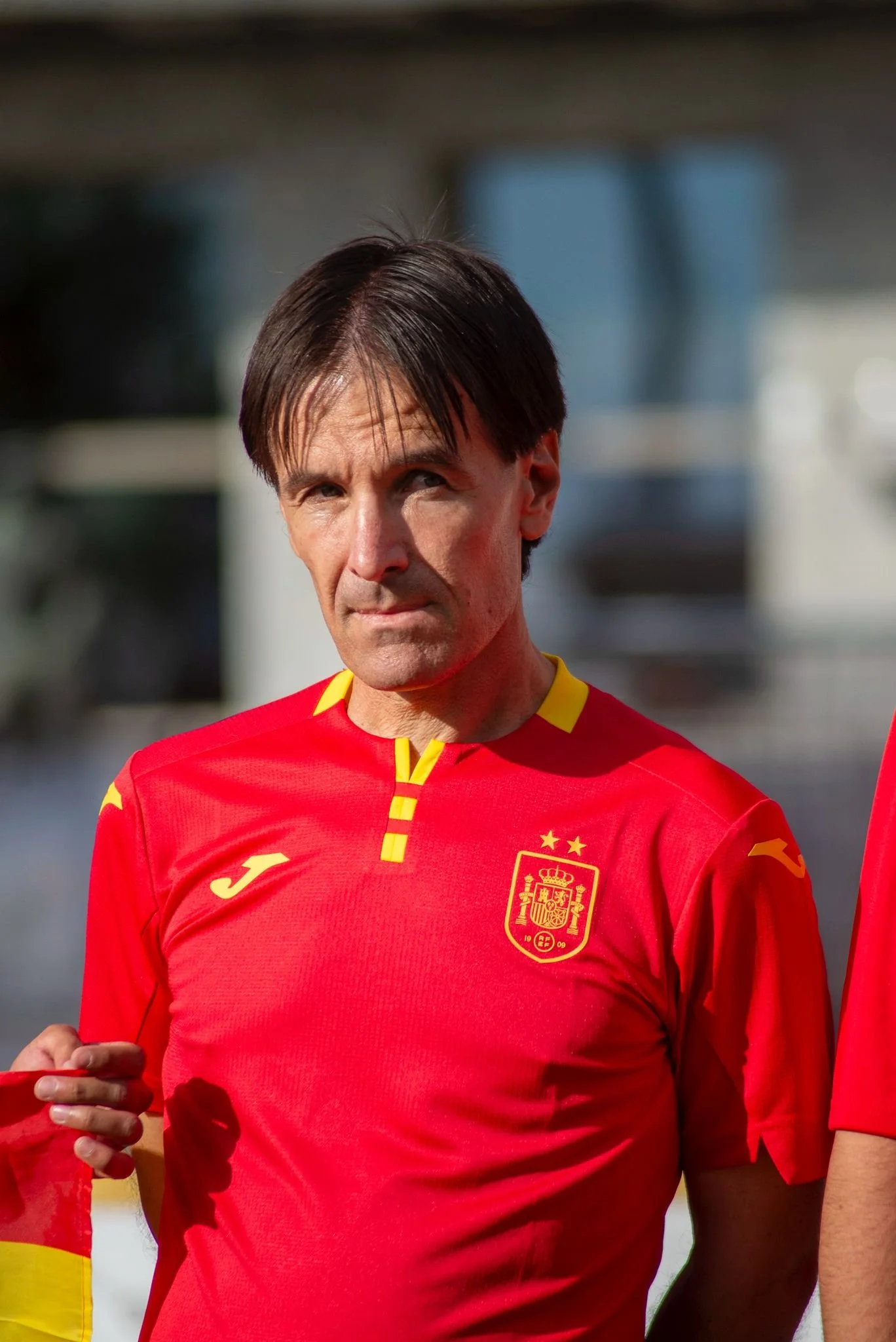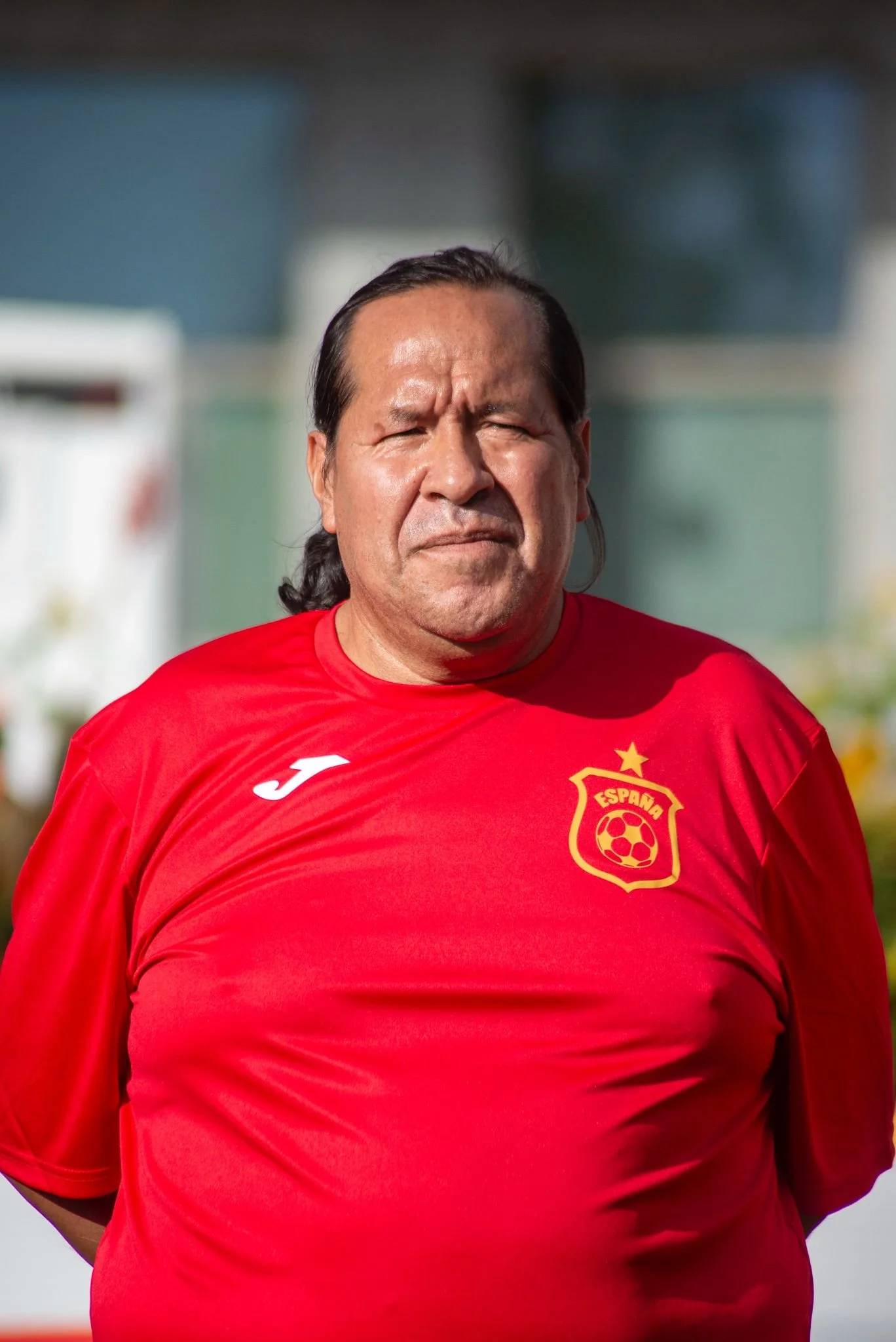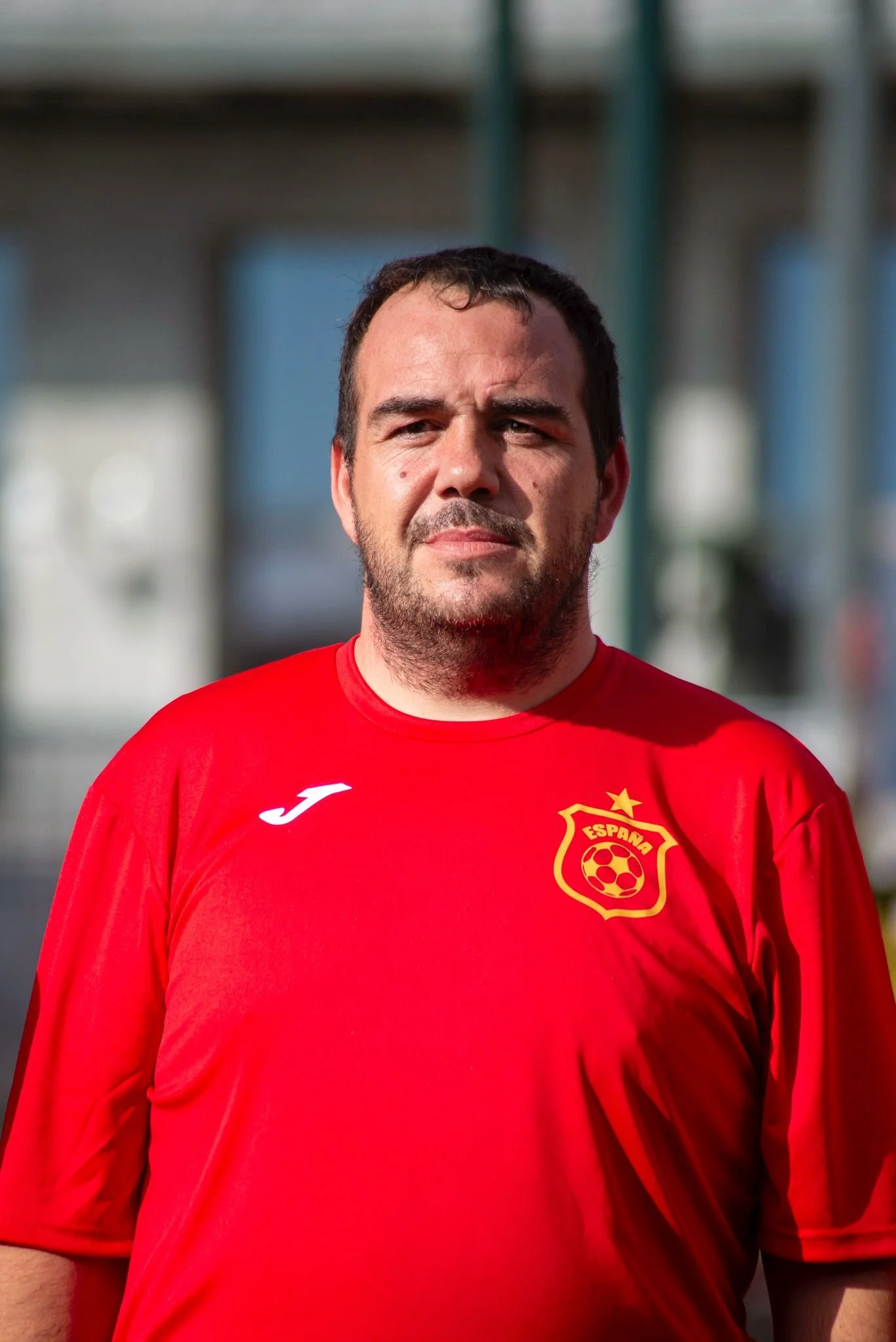Four players, four journeys, one goal
The road to playing in a Homeless World Cup is often long, frequently bumpy and always involves a variety of routes - take the Spanish team, making their tournament return after an absence of nearly two decades. Manager Miguel Buzeta Juanicorena and coach Javier Almagro Gascon have brought a mixed team of seven to Oslo, all relishing the opportunity to become part of the global family - and all with a story to tell…
Twenty-nine-year-old Sandra Pereira Altamuro is already a recognisable figure, bossing the pitch and slotting winners, her outgoing nature belying the turmoil of her past.
“I have family but it’s broken,” she says. “When I was eight, my mum and dad split; my mum went on to have a relationship with another man but he was bad, very troubled, and almost every day my mum had to call the police.”
Sandra eventually left home when she was 24, when her mother’s new partner abused her and she went to the police. “My mum didn’t trust him so she asked me to leave the house,” she adds.
“I was alone and felt nobody could see me. I had bad thoughts inside of me and felt that my head was broken, that nobody loved me. I was homeless and sleeping at the airport [among the hundreds of homeless people who regularly sleep in Terminal 4 of Madrid airport].
“The airport police chase us away at 5am then I wash in the fountain in the street. I don’t like it but it’s the only option, especially in November and December when the weather is so bad. But there are lots of insects, people steal from you and do drugs all around you.”
In Madrid she found the group Association Realidades - an NGO fighting for the rights of people who are homeless - where she could leave her small bag of belongings and get something to eat. It was there she also met her current teammates, Genri and Luis, who were playing football with Dragones de Lavapiés, a community-based club created in 2014. “I went along with them and it was amazing - a small team but with a big heart - and remembered the child of my dreams, when I was eight, and loved playing football.
“I love my team, the players are my brothers and Javier and Miguel are my fathers. My team is my new family,” she states.
“To be part of Homeless World Cup is amazing - not just for the football but for the people. To meet everyone from different countries makes me believe not all people are bad.”
Jorge Vals Mayolas, wearing the captain’s armband, always wanted to be a soccer player - but soccer hasn’t always wanted him.
“When I was 22 years old I signed with a professional team in the second regional league,” he explains, “but after two years I was told there were no opportunities. There was the first team and the players, like me, who always missed selection.”
During this time Jorge had also been studying business at university but didn’t finish his business course as his motivation had gone, along with his dreams of a soccer career. “It’s difficult to become a professional in a good team if you haven’t established yourself at a younger age.”
At this point he also left the family home - his parents had divorced - and took to the road, feeling stressed and empty. The scant funds he had were soon gone and by the time he was 36, with no home and no money, he sought help from social services. One of those services was a partner of the Dragones de Lavapiés team who had activities on offer so, naturally, he chose the soccer team and has played with them for two years now.
“For the last few years I have had some luck,” he says. “Social services gave me a small flat but before that, for almost 20 years, I lived on the street, in the airport, in empty buildings. When I took the decision to leave the family house I knew it was going to be risky but it was my decision - I never got into trouble, though.”
On hearing he had been selected to come to the Homeless World Cup this year, his initial fear turned to excitement. “It’s something positive, something good. I knew inside myself there was always a soccer player and now I have another opportunity to show that.”
Genri Fabricio was ten years old, living in his home country of Ecuador, when his childhood ended. “I remember the exact moment,” he recalls. “My father was strumming his guitar - a pasa doble - when he suddenly stopped playing and told me from that day on, he was not going to support me anymore. I would have to go out to work and earn money.”
Ending up in a forest, Genri secured work digging up the base and roots of trees which had been felled, to leave an empty hole - an apposite reflection of his young life at that point.
“I’m the oldest of five brothers,” he continues, “and my father kept leaving the family and not supporting them so I had to work to put food on the table, to put them through their education, even into university. I was 31 when the youngest one finished his studies and they could support themselves.”
At this point Genri decided to start afresh and move to Spain, the land of his ancestors. “I knew nobody, but I had some money saved. I had experience with carpentry and welding, and I got up at 5am each morning to pick up work in construction. I was recommended to other people and began working from day to day.”
Then Covid happened, all the work dried up and he had no money. For three years he lived on the streets and began to drink: “It was the only thing that helped me to forget about life and its frustrations. After all these years working hard, how could I find myself in this position? Then someone told me about a place I could shower, have something to eat and wash my clothes but it took me eight months to accept help.”
While attending the Association Realidades, Genri was asked if he wanted to join the Dragones programme and duly began playing football. “When I first saw the pitch, it immediately reminded me of when I was a little boy, playing with people in the streets, before I stopped being a kid and had to start work,” he recalls quietly. “I became very emotional about it and went on to become part of the football programme.
“To be able to represent my country here - because Spain is my country, through my heritage - is magical.”
When Ricardo Torres Monedero was eight years old his parents divorced and, two years later, his ailing mother embarked on the first of five serious surgeries. His older sister, who had been tasked with taking care of Ricardo and his siblings, was struggling in the role and by the time he was 11 - despite being the youngest - he was taking care of the family, including two baby nephews.
“At twelve years old I was cooking for them, doing everything for them so I wasn’t able to have a childhood. No football or enjoying life because I had all those responsibilities.”
Following his mother’s death, Ricardo sought comfort in drugs and developed an addiction. His older sister, who should have been looking after the family finances, hadn’t been doing so, and the family were soon evicted from their home.
“I joined a church and I was send to a rehab centre in another province,” he continues. “While there, I was allocated a social housing flat but, when I arrived at the property, it had been taken by a family who then demanded money from me to live in the house I had been allocated.
“Then I had to sleep on the streets for three years. At that point, I had thoughts of committing suicide because I had no support from anyone, not family nor friends.”
One day he walked past the facility where Dragones were training, saw the project and wanted to join in but, “I didn’t have the strength or confidence because I was worried about my personal hygiene, about being around other people. So I spoke to [manager] Miguel in private and the organisation was able to provide some shorts and some socks to make me feel I was part of the programme. I felt accepted and it was a way to forget about all the other things happening in my life.”
Two years later, Ricardo couldn’t believe his luck when he had a chance to represent Spain - but his joy was tinged with anxiety. “I was worried I wasn’t in good shape and realised though I wanted to be in the team, I needed to be physically better and more fit.”
With support from the team, he achieved his goals and, “Since the day I was selected I have been emotional, crying, nervous because I know that this opportunity is a dream come true; playing football in another country, representing my country, makes me feel very grateful.”
Words by Isobel Irvine | Photos by Donnie Nicholson

